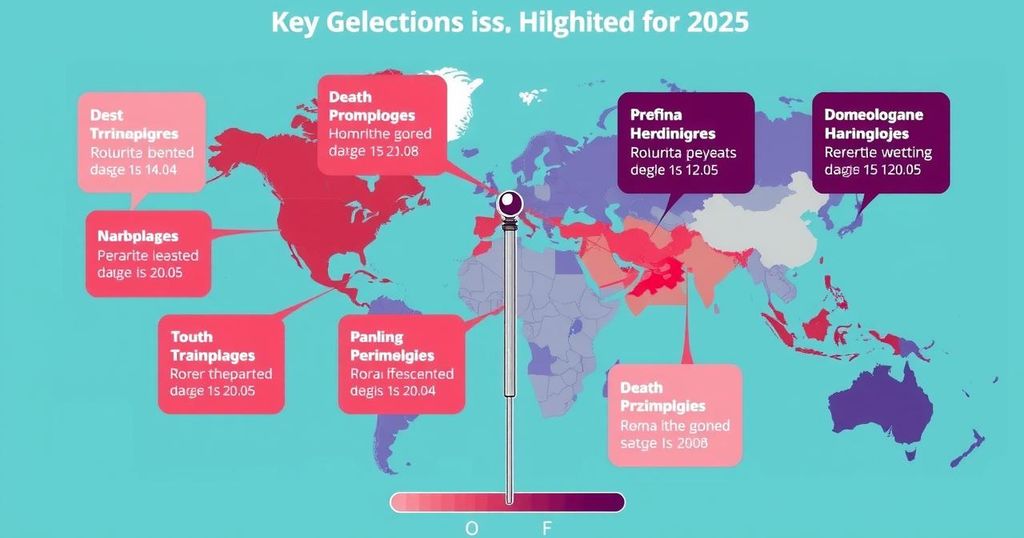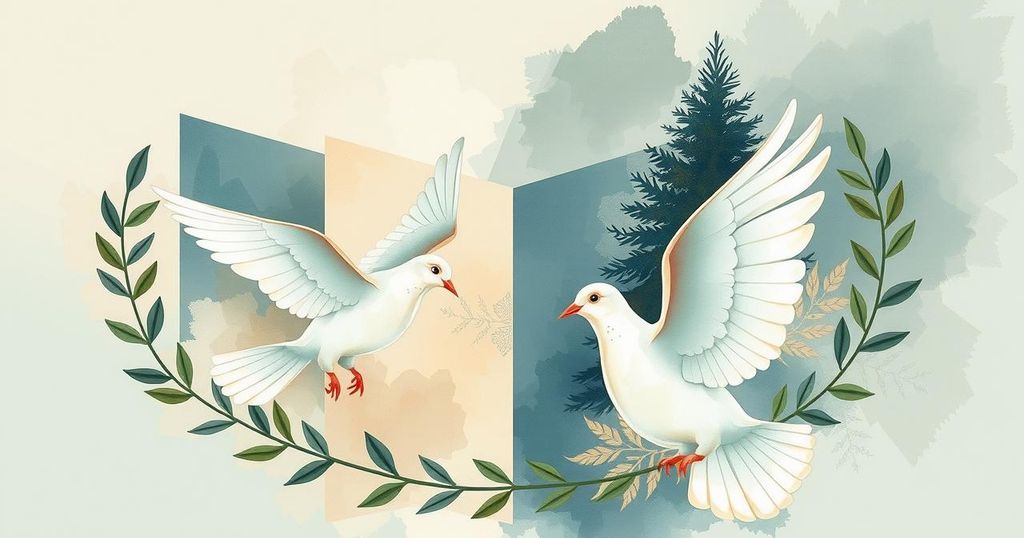Significant Global Elections to Monitor in 2025
In 2025, key elections are set to occur across Belarus, Germany, the Philippines, Canada, and Chile, each reflecting critical themes of inflation, populism, and geopolitical tensions. Key figures such as Alexander Lukashenko in Belarus and Olaf Scholz in Germany face pivotal electoral challenges. The Philippine midterm elections are essential for President Marcos Jr., while Trudeau’s government in Canada may confront a potential upheaval. Chile’s elections will shape its political dynamics in the wake of social unrest.
In 2025, several crucial elections are poised to unfold across the globe, despite a dip in electoral activity compared to the bustling year of 2024. Major themes influencing these elections include inflation, the rise of populism, and geopolitical tensions, particularly stemming from ongoing conflicts in Europe and the Middle East. Experts have focused on five nations—Belarus, Germany, the Philippines, Canada, and Chile—to elucidate the stakes involved in each.
In Belarus, Alexander Lukashenko, who has been in power since 1994, is expected to secure his seventh term amid a restrictive political environment that lacks true opposition. The elections are criticized for their lack of fairness, particularly following the protests against alleged electoral fraud in 2020. Should Lukashenko prevail, Belarus is likely to continue its close alignment with Russia.
Germany faces an unexpected federal election on February 23, 2025, after the collapse of Chancellor Olaf Scholz’s coalition government. Key issues will revolve around the economic challenges exacerbated by the war in Ukraine, decreased public confidence in the Chancellor’s leadership, and the potential for a more conservative government under Friedrich Merz.
The Philippines’ midterm elections on May 12, 2025, serve as a crucial platform for President Ferdinand Marcos Jr. to consolidate power amid political turmoil and an uncertain relationship with Vice President Sara Duterte. The elections could materially affect the structure of the Senate and upcoming political battles.
In Canada, Prime Minister Justin Trudeau’s government is vulnerable due to declining popularity and internal strife, potentially leading to an earlier election than scheduled. Key issues include inflation, competing visions for Canada’s identity, and the influence of populist movements.
Chile’s elections on November 16, 2025, will see President Gabriel Boric, barred from seeking re-election, contend with a polarized political landscape. Potential opposition challenges from candidates like Evelyn Matthei may reshape Chile’s political future in light of recent social upheaval and economic recovery efforts.
These elections, significant not only for their individual countries but also for the broader global landscape, reflect the changing tides of national and international politics as they grapple with economic pressures, citizens’ rights, and leadership stability.
As the world approaches the year 2025, multiple nations are set to hold significant elections that reflect ongoing political tensions and societal shifts. The analysis provided showcases the political environment in countries such as Belarus, where authoritarian governance hampers electoral legitimacy; Germany, which grapples with coalition instability; and the Philippines, where political alliances face scrutiny. Other nations, including Canada and Chile, are also poised for crucial elections amid economic challenges and potential shifts in governance philosophy, making these races essential to follow.
The elections scheduled for 2025 are critical for the political futures of Belarus, Germany, the Philippines, Canada, and Chile. As economic pressures, populist trends, and geopolitical conflicts shape the electoral landscapes, the outcomes will have significant implications for governance styles and international relationships. Each country’s electorate will be called to navigate complex choices that reflect their socio-political realities and aspirations moving forward.
Original Source: www.ndtv.com




Post Comment